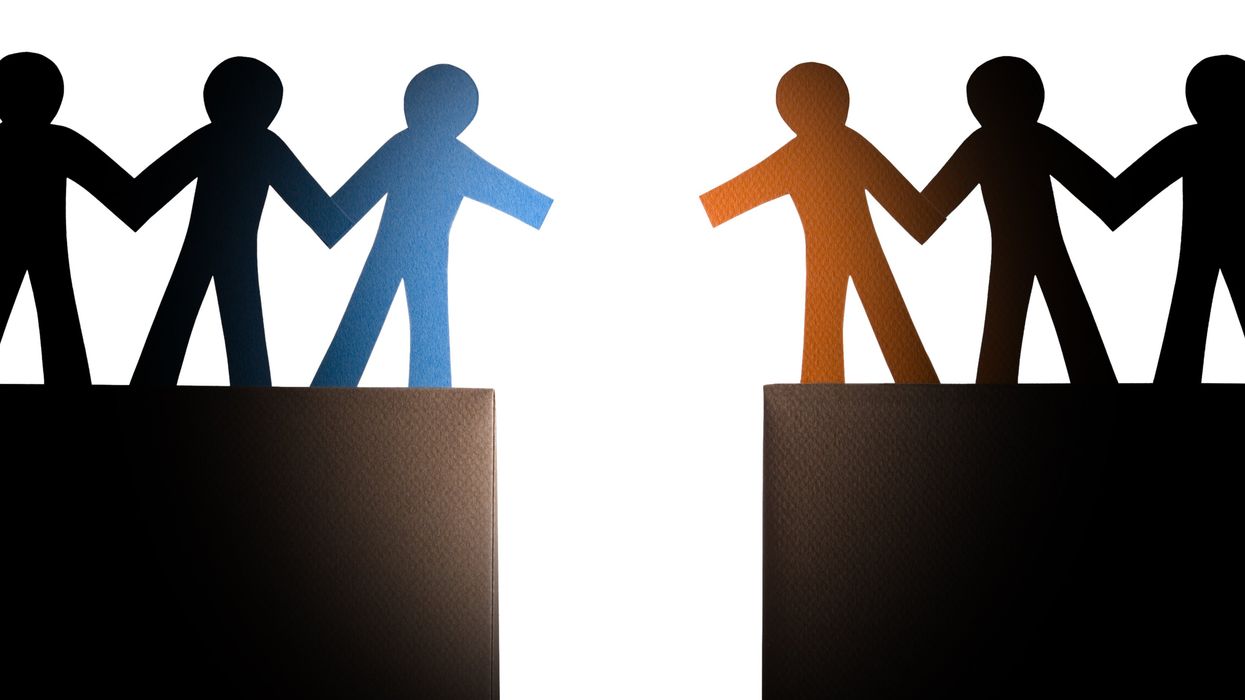This essay is part of a series by Lawyers Defending American Democracy (LDAD) explaining in practical terms what the new administration’s executive orders and other official actions mean for all of us. Virtually all of these actions spring from the pages of Project 2025, the administration's 900-page blueprint for government action over the next four years. The Project 2025 agenda should concern all of us, as it tracks strategies already implemented in countries such as Hungary to erode democratic norms and adopt authoritarian approaches to governing.
Project 2025’s stated intent to move quickly to “dismantle” the federal government will strip the public of important protections against excessive presidential power and provide big corporations with enormous opportunities to profit by preying on America's households.
In Part 2 of this series, we address the Executive Orders (EO) and related actions aimed at eliminating any and all measures deemed to advance “diversity, equity and inclusion (DEI).” That phrase lacks a precise legal definition but embraces all aspects of the legal and social infrastructure designed to fulfill the constitutional promise of equal protection for all. Despite the vigorous efforts to eliminate all traces of such measures from the federal government, these executive orders cannot repeal longstanding federal anti-discrimination laws, and many have been challenged in ongoing litigation.
From Advancing Equality To Distorting Civil Rights Law
Since Inauguration Day, President Trump has unleashed an avalanche of moves meant to end lawful efforts to advance diversity and ensure a level playing field. In doing so, the administration seeks a wholesale rollback of efforts to eliminate historic and enduring inequalities. Its hastily implemented actions have included, for example, rescinding a host of recent and longstanding executive orders and actions promoting equal opportunity, ending programs that directly - or even by mere implication - advance diversity, equity, and inclusion (DEI), terminating research projects, and calling for investigations and punishment of law firms and educational institutions it accuses of clinging to DEI goals.
These actions are framed in neutral terms that speak of advancing “merit” and “fairness.” The real impact, however, is to erase the history of discrimination in this country and eliminate efforts to ensure fairness and a level playing field for historically marginalized groups.
Project 2025 – Calling For An End To DEI Programs
Project 2025 lays out a broad and detailed plan for the complete obliteration of DEI in the federal government, including mandates, training, policies, programs, and concepts at every level. This includes banning such words as diversity, equity, inclusion, gender, gender equality, gender equity, gender awareness, reproductive rights, sexual orientation, and gender identity, in federal rules, regulations, contracts, grants, and legislation. Project 2025 also advocates for the investigation of DEI practices and calls for measures to ensure that race, gender, and other protected characteristics are not considered in hiring and other decision-making.
Why This Matters
This broad assault on DEI aims to undermine, if not eliminate, all laws, policies, and programs designed to advance equal opportunity and comply with established anti-discrimination laws. Alarmingly, the reach of these actions extends far beyond the federal government. Project 2025 also makes its way into the management of private law firms, universities, and cultural organizations, aiming to undercut laws and policies built up over decades to create a level playing field for everyone. Only Congress can create laws; the president cannot repeal laws by firing those who enforce them, cutting programs, and deleting information from websites.
The breathtaking sweep of these edicts should alarm anyone concerned about core democratic principles of free speech and fair treatment.
Here are just a few examples of how the actions:
Restrict knowledge by:
- Censoring what can be taught in schools and erasing accounts of history, particularly with respect to race and gender that don’t comport with the current administration’s orthodoxy.
- Purging hundreds of words --including “advocacy,” “belong,” “black,” “disability,” “gender,” “injustice,” and “women,” to name but a few--from government documents and websites. In many instances, this wholesale purge has swept up and eliminated web pages that have nothing to do with DEI.
- Rewriting historical accounts. For example: In two reactionary acts of censorship that led to so much backlash they had to be reversed, the administration wiped all references to Harriet Tubman from the National Park Service's Underground Railroad webpage and removed mention of the military career of Major League Baseball legend Jackie Robinson from the Defense Department's website. A defense department order would purge books critical of racism but would preserve volumes defending white power.
Threaten health and safety and limit scientific advances by:
- Cutting funding for research into cancer, Alzheimer’s, sexual violence, domestic violence affecting pregnant women, issues affecting transgender people, and many other critical areas that could lead to cures for chronic diseases, and firing experts in children’s health.
- Freezing funding for services for domestic and sexual violence survivors.
- Eliminating programs that link undergraduates with NASA scientists, along with other programs that increase the competitiveness and diversity of research teams.
Perpetuate inequality by:
- Firing federal employees who work on diversity, equity, and inclusion initiatives and compliance with laws.
- Gutting agencies that support minority-owned businesses.
- Shutting programs that work to eliminate racial disparities in veterans’ benefits.
- Denying transgender people the ability to file antidiscrimination claims.
Chill dissent and quash challenges to the administration’s approved viewpoints by:
- Threatening and instituting investigations of educational institutions and law firms, among others, that have taken stands in support of advancing equity for members of historically marginalized groups.
Key Takeaway
These and related actions aim to eradicate decades of progress in eliminating historic inequality. In addition, they intrude on the right of free speech, a core tenet of our democracy.
Lawyers Defending American Democracy is dedicated to galvanizing lawyers “to defend the rule of law in the face of an unprecedented threat to American Democracy.” Its work is not political or partisan.




















Trump & Hegseth gave Mark Kelly a huge 2028 gift